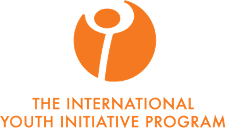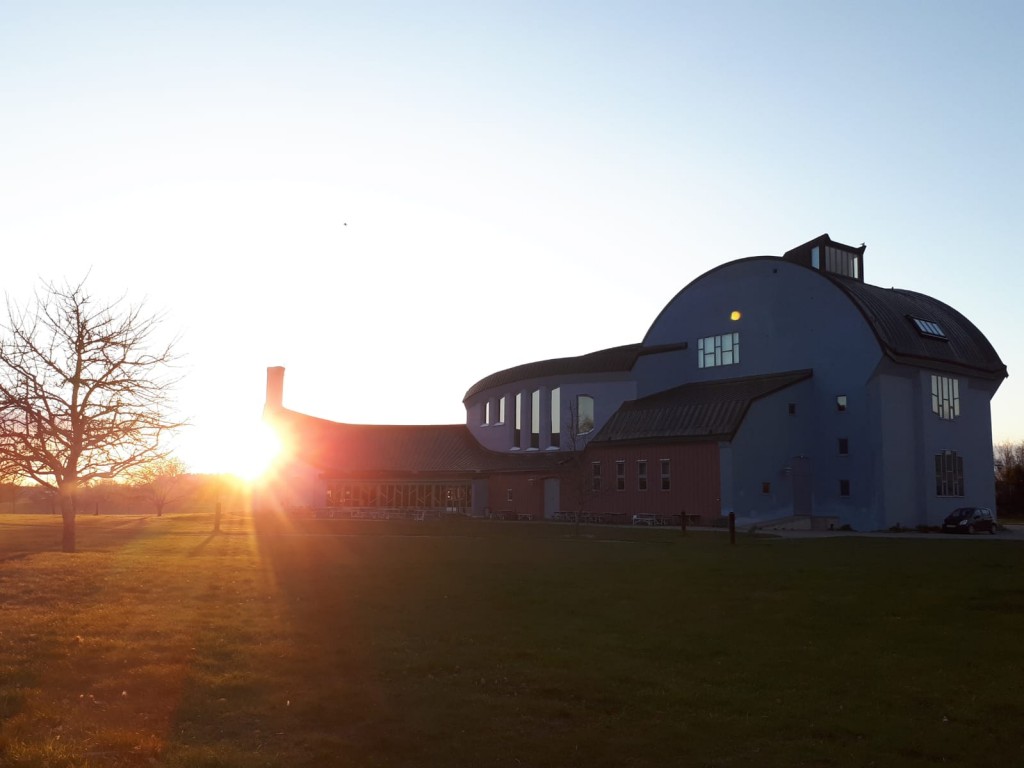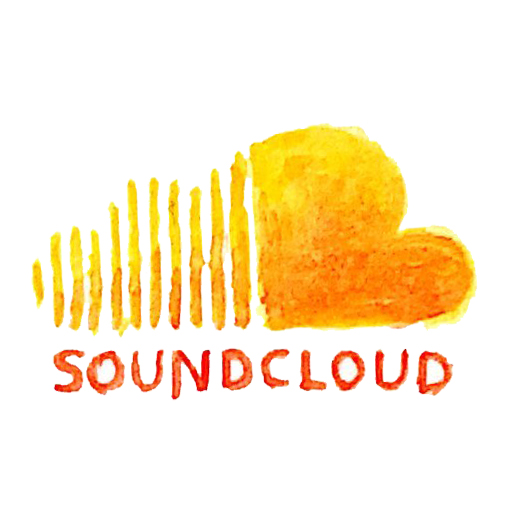Dear friends of YIP,
We hope and trust this newsletter finds you well. This edition is all about Learning Placements! In mid March, YIP13 set off to their various placements to experience first hand what it is like to work within an Organisation/Community/Enterprise with positive social change at its core. They left equipped with a question or lens through which to explore and harvest their learning. The process was a long one that started in the beginning of the YIP year. There were some shifts and turns, highs and lows, many circles and conversations. In mid April, they all returned safely with new songs to sing, new recipes to share and many new stories to tell.
Meanwhile in Ytterjärna, the Organising Team has been busy designing and landing the curriculum for YIP14. There are exciting courses and contributors that we look forward to sharing with you. We hope you enjoy this newsletter, which ends with an invitation to help us spread the word for YIP14.
In this newsletter you will find:
• Live Chat and Q&A: What is YIP?
• Learning Placement Process by Isabel Chender
• Rosenhillby Lilith Wūller, Pauline Wenzel & Bianca Montemarano
• Sekem by Mimi Matamoros
• Live to Be by Bee Reinhold & Jelmer Verhagen
• Organising, Communication & Facilitation by Michael Chiunda
• SAGA Waldorf Kindergarten & Sustainable Shops by Jiah Kim & Dohyun Kim
• Kufunda Learning Village by Anna Morter
• Song Writing and Music Making by Ultra Violet Archer
• Learning Placement Podcast: Part 1 by Mimi Matamoros & Lilith Wūller
• Meanwhile in Ytterjärna by Naomi Richards
• Spread the word for YIP14!

LIVE Chat and Q&A: What is YIP?
We have had two Live Chat sessions so far and it has been lovely to meet and speak with you. So, we have scheduled another one! If you are curious to learn more about YIP, the history and ethos, the flow of the curriculum, please bring your questions and join us in the Zoom Room.
We look forward to meeting you!
Date: Monday 7th June 2021
Time: 19:00 CET
Place: ZOOM
Do you know anyone who would be interested? Please share and invite friends to the FB event.

Learning Placement Process
Balancing theoretical and experiential learning is one way that YIP cultivates our capacity to really know or understand.
Beginning with interest, the Yippies turn themselves towards the world to take action and become involved in initiatives working with community development, education, biodynamic farming, change facilitation, creative arts and beyond.
Becoming a societal entrepreneur – someone who dances between being oneself and being of service to the world – requires both dreaming and manifesting.
The Learning Placements, formally called the International Internship, is a five week learning experience wherein participants work with a topic or theme in a particular organisation and dive more deeply into what their life or work could look like. When explaining the value of this aspect of the program, we often use the sentence :
“ This is an opportunity to see what working with climate change looks like at 3pm on a Wednesday afternoon in a particular context”.
Each year we learn about what is useful and supportive to the process of finding, connecting with, and forming small groups around different initiatives.
In this year we worked with additional variables surrounding travel, health, and stances regarding movement over physical boundaries. It also called us to work with uncertain and changing environments.
This year we experimented with some new elements
- A two week research phase where we used Open Space Technology to surface different areas or organisations of interest, followed by sharing proposals
- We had an “Ideas festival” where all the different Learning Placement ideas were brought to the group, bringing lightness, playfulness and art to the process
- We made decisions later in the year – two weeks later – in order to provide space to dream more and plan more
- A new week called “Encountering the world” was added during the Collaboration course block, bringing in speakers to inspire and to give space for plans B, C, D, etc
We faced some challenges
- Never before did we hear so many. “We would love to host an internship and work with you, but due to the current restrictions …”
- We practiced resilience as plans changed – We were unable to go to Open Source Arts in Leeds, UK or Damanhur in Italy due to travel and hosting restrictions, as well as the fact that a lot of work had moved online
- As some of the Yippies were unable to travel, they found new opportunities and/or entered into a phase of self-directed curriculum. This took many shapes and forms depending on the opportunities presented and interest of the Yippies.
During the last week of April we heard back from each group and witnessed the highs and lows of their experience. I marvelled in the resilience and capacity of each group to dream, plan, adapt and continue to be resilient. Some of the learning can be understood in this moment – some mentioned that the challenging learning aspects may become more apparent over time. In writing this short description, a window into the process, I am reminded of the bravery of each one to be in uncertainty and practice many of the mindsets, skills, and methods learned throughout the year. I hope you enjoy hearing their stories as much as I do.
By Isabel (Organising Team)
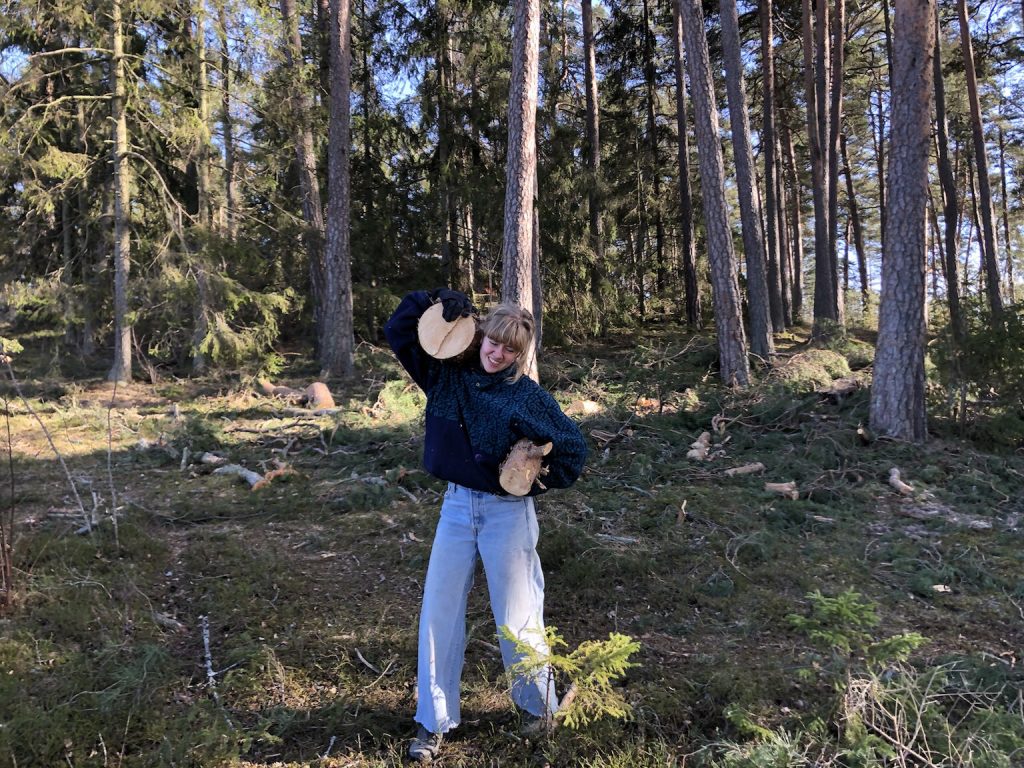
Rosenhill – Sweden
After a lot of curves and edges we found our way to our learning placement in Sweden, a small farm with a Café called Rosenhill. Cold nights in the bus, warm feet by the fire, fresh wind in the outdoor kitchen. Deep learning through conversations, mouthwatering meals and decadent sweets, scary geese and a joyful dog.
Throughout our time at Rosenhill we had unexpected learnings about ourselves, our group and some of the realities outside of YIP. We hold a lot if gratitude in our hearts for the opportunity to spend four weeks in this community and we are looking forward to visiting Rosenhill again when the apples are ripe and flowers are in bloom.
By Lilith, Pauline & Bianca
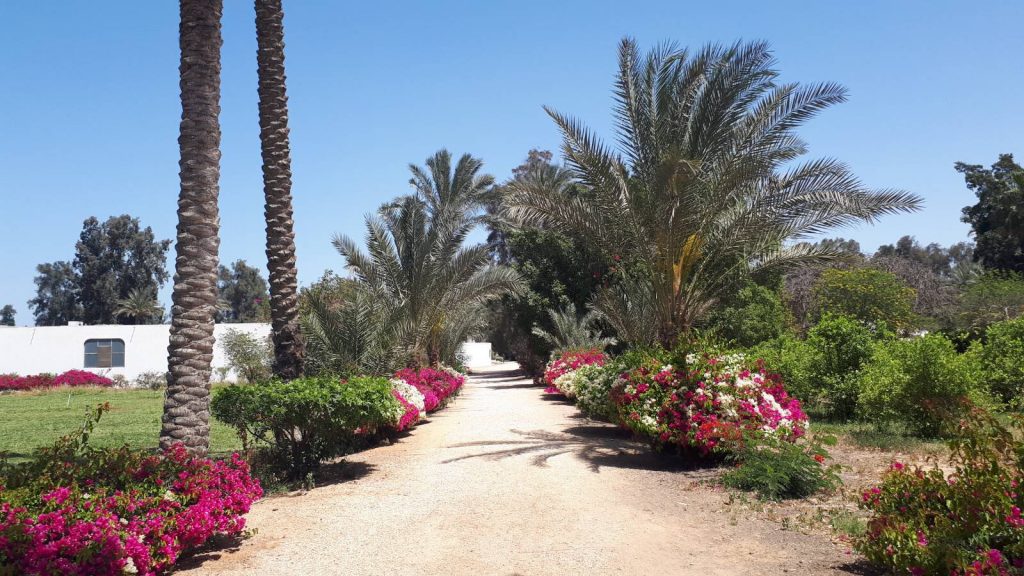
Sekem – Egypt
My name is Mimi and I was part of a group of three who visited SEKEM, a large initiative in Egypt. The other two Yippies who were with me were Petra and Aaron. On March 19th we all woke up in the early hours of the morning and headed to the Arlanda Airport where we would start our Learning Placement.
As we stepped out of the Cairo International Airport, at nearly 3 in the morning, we were met with a warm breeze and a man holding a sign that read SEKEM. I drifted between sleep and waking during the hour plus drive to the SEKEM farm, where we were staying. We drove through Cairo with lights and colours which then transformed into rural roads as we approached the farm.
SEKEM is a large company in Egypt that works with biodynamic farming practices and sustainable and ethical production. SEKEM was founded over 40 years ago by an Egyptian man named Ibrahim Abouleish. Ibrahim had studied in Austria and learned about Anthroposophy there. Based on the values of Anthroposophy and Islam, Ibrahim built the SEKEM initiative in the egyptian desert just north east of Cairo. The goal of SEKEM is to work with an Economy of Love which incorporates the ecological, economic, societal, and cultural aspects of life equally into the workplace. However, Ibrahim did not build SEKEM alone; he had support from a group of 11 other individuals who were also founders of SEKEM and helped to build it from the ground up. The founders of SEKEM, apart from Ibrahim, are mostly German or Austrian and now make up the core of the SEKEM community.
Our Learning Placement host was Nana Woo. She manages the Economy of Love Education Program (EoL EDU) which is built to Educate companies and individuals about what it means to practice the Economy of Love. Although Nana was the Learning Placement host I was the only one who worked with her and the EoL EDU team. Petra worked in Nature Text, SEKEM’s clothing brand, where she sorted through discarded dolls and organized them for archival purposes; and Aaron worked in the Economy of Love sector creating a plant book with information about many of the plants that grow around the SEKEM farm. I cannot speak for their experiences, so I won’t say much more about their work, but what I will say is that, unfortunately, both of their work coaches were very busy so they did not have so much time to be a mentor to them. In contrast, what I found so wonderful about Nana was that instead of being given a single task to complete alone, I was able to shadow her in sessions that she held and in team meetings as well as completing some solo tasks; she really took the time to mentor me in her work so I had a very well – rounded experience.
Although the three of us worked separately, we had many group experiences outside of our day to day tasks. The first week that we arrived, before we started with our individual projects, we were able to visit Cairo toegether and see the Oldest Mosque in the city as well as the Pyramids. We also worked in the SEKEM factories for 2 days near the beginning to get a brief experience of the environment the SEKEM factory workers work in. On Thursday of the first week we attended SEKEM’s spring festival which was full of songs from the children at the SEKEM school, skits performed by the workers, and Eurythmy performances. The theme this year of the festival was renewable energy, so it was also very educational. Over our third weekend we visited another one of SEKEM’s farms in Wahat, in the desert. While we were there we planted trees, weeded fields, and worked in the vegetable garden.
Each of us had very unique experiences in Egypt. My own was filled with many questions. There were so many different atmospheres, landscapes, and ways of being in relation that I experienced throughout Egypt and throughout my stay. I was constantly looking around wide eyed trying to take it all in. I was challenged in many ways, one way being by the euro-centered hierarchical structure of the Sekem company, and another being by my own white-north american identity and the power dynamics that accompanied that identity in relation to a country steeped in colonial history. And at the same time I was enlivened by the energy that circulated in the cities as well as the openness and warmth of the Egyptian people I met. There was so much life and movement and relationship. It felt as if no one was living alone or behind closed doors. I was also humbled by the serene vastness of the desert, the integrity of the palm trees, and the red sunsets. Finally it was the individual connections I made with a few at SEKEM that gave me the most inspiration and hope: Nana taught me that it is all about human connection and seeing the individual; and Hadeel, a muslim, egyptian woman on the EoL EDU team inspired me in how she brought the EoL principals to the workers through the lens of Islamic philosophy creating deeper understanding through cultural significance.
Although I was challenged by Sekem, as I believe we all were in our different ways, I am also so grateful for the space it held for me and the people it led me to. My experience in Egypt with SEKEM contained multiplicities, and I will carry my learnings and questions from my time there into the next landscapes of my journey ahead.
By Mimi
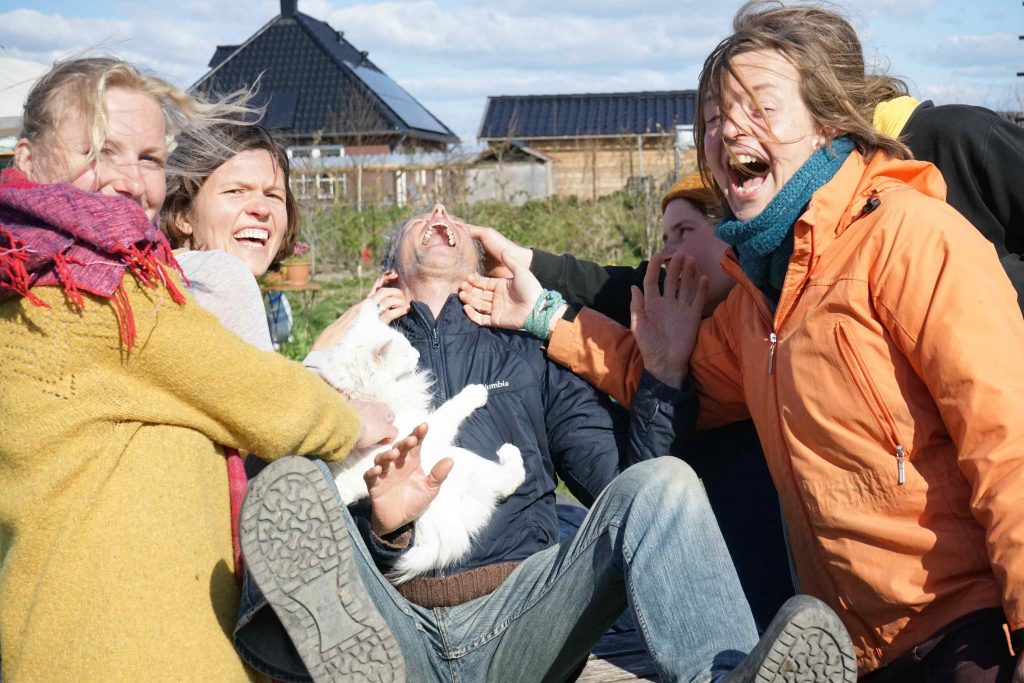
Live to Be – Netherlands
The Netherlands. Flat. No trees, as far as the eye can reach. Tiny houses. And in the middle of it a living community, called Live to Be. We, Jelmer and Bee, spent the four weeks of our Learning Placement, building, gardening, socialising, cooking, getting to know a different way of creating a community, helping wherever we were needed, talking, getting inspired, dreaming about the future, and enjoying life…
Everything was quite spontaneous. It was only two days before we started to travel overland and water, that we heard of this community. But it fitted perfectly. We had an awesome time with ups and downs and a lot of learnings about ourselves, like life is. 🙂
It is so wonderful and inspiring what this community creates and what purpose they are holding. We will definitely return. Our magical words are: Transiting, fire truck, abundance.
By Bee & Jelmer
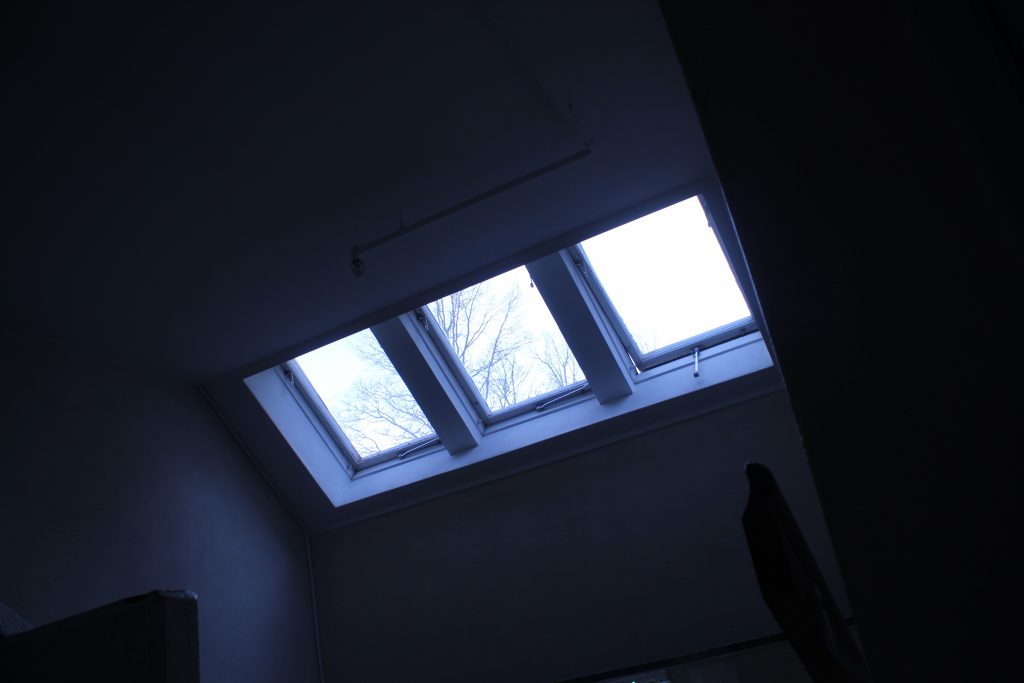
Organising, Communication & Facilitation – Sweden
My Learning Placement period was a cocktail of both challenges and triumphs that allowed me to better understand my capacities and purpose when it comes to organizing, communication and facilitation.
I faced the challenge that my initial host organization in Leeds, because of unforeseen obstacles could no longer host me. I had to quickly find other alternatives to continue with my Learning Placement experience. I decided to contact potential host organizations within Sweden however because of the limited time most of them responded late into the 4 week Learning Placement period.
Fortunately before the Learning Placement began I had started an online facilitation event that I discussed issues centred around topics such as queerness, polyamory, racial inequalities, sexual harassment, importance of social media and police brutality. I entered into my Learning Placement with the question “who are you?” which sought to investigate the human experience on every possible level both internally and externally (that is in relation with any organism beyond the human body’s experience).
With this question, I used the online platform and photography as the main tools to unearth the responses. I collaborated with a Non Governmental Organization based in Zimbabwe that primarily works with the youth to shed light on urban voices. The period opened a portal into questions and individual experiences from participants all over the world who used this opportunity to talk about their own lives.
I am grateful for the people who were willing to spend time with me, sharing their truth.
I also used the time to build relations with people and organizations that I hoped to work with during my self design and beyond that. In that sense, my Learning Placement was a period of networking and establishing who and where I would like to involve myself.
By Michael
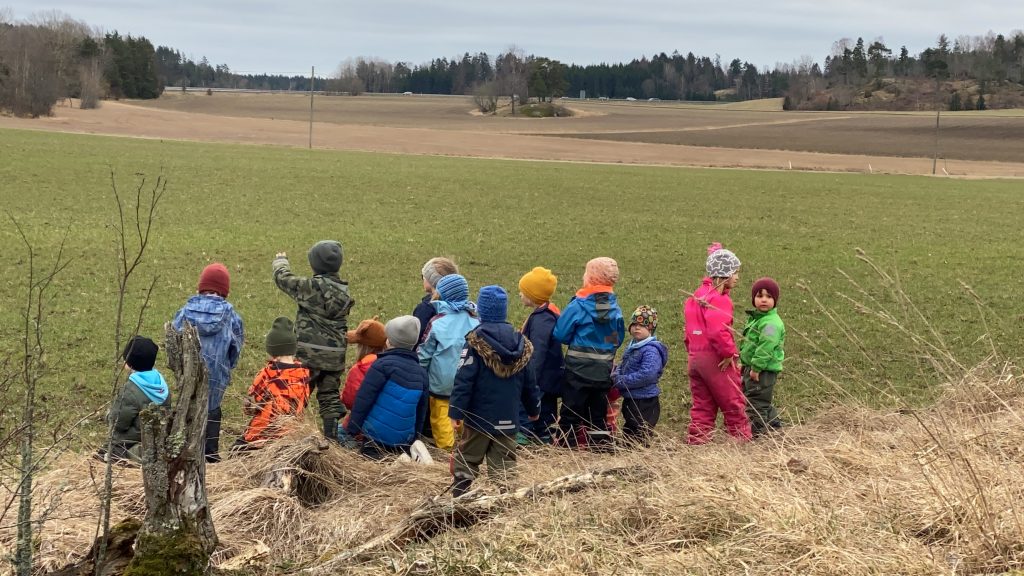
SAGA Waldorf Kindergarten & Sustainable Shops – Sweden
“God morgon! (Good morning!)” “apelsin (orange)” “päron (pear)” “hej då! (Goodbye!)” This was all we understood at the SAGA kindergarten, where we had our Learning Placement.
Since we didn’t know each other’s language, we couldn’t communicate with the children. But we could be friends. Because language wasn’t important to become friends. They came to us every time and twittered like a bird without reserve. We could see their face and feel their hands. That was enough! The time we spent at the SAGA kindergarten was like flowers in the spring and a sea pearl shining deep in the ocean.
Then we headed to Stockholm to explore sustainable shops. We went to second-hand stores, zero-waste shops and eco-friendly lifestyle shops. In these places we met various people and had nutritious conversations with them. All of them were looking at “sustainability” in different levels & ways, and had pride in the work that they did. We could imagine how we can live in sustainable ways in different fields. Also, we could materialize our ideas by looking at the people who are actually doing things that we vaguely thought of.
Actually, nothing happened the way we planned. However, because of that, we met unexpected places and people. So we could learn even more than we expected.
By Dohyun & Jiah
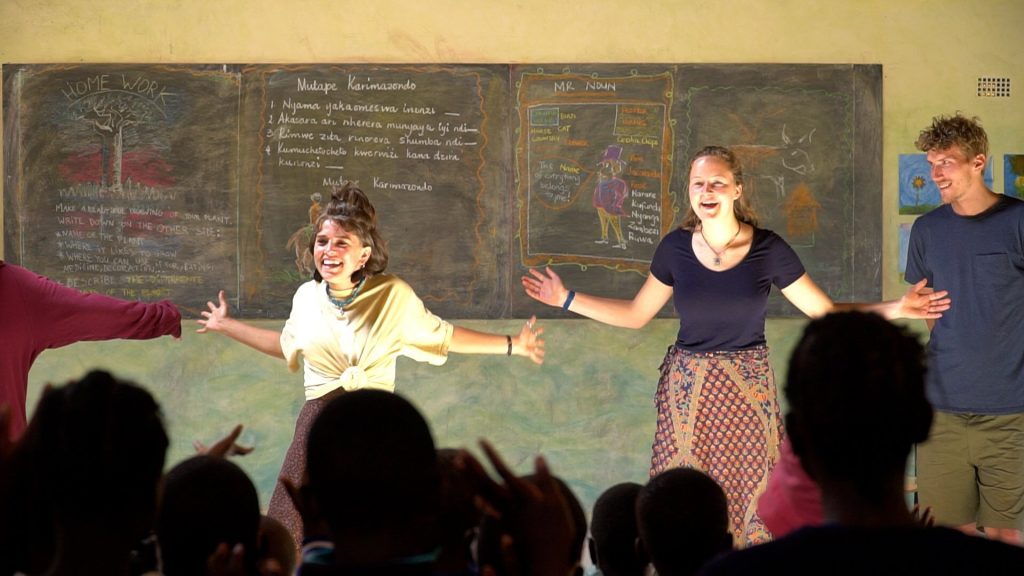
Kufunda Learning Village – Zimbabwe
When we started exploring our Learning Placement options at the beginning of the year, a placement in Europe felt optimistic; I found it a challenge to build investment and interest in a placement with the uncertainty surrounding the pandemic. I also felt uneasy about travelling across the world, given that it was arguably not “necessary” travel. Holding this reality, I also felt it was useless to turn down such a beautiful opportunity to learn, be challenged, shift perspective and narratives. I also felt it important that the practical, emotional and spiritual skills that I had learnt at YIP were implemented in service of something beyond our small community. So I joined a group of four other yippies and travelled to Zimbabwe.
Zimbabwe! Having only ever travelled in Europe on coaches or budget airlines, the free food on the plane was already getting me very excited to venture beyond this familiar land. I was travelling with an open mind, trying to let go of any expectation of what would greet the five of us yippies on arrival, other than the lack of snow which we parted with when we left Sweden, and the certainty of warm sun.
When we arrived at Kufunda Learning Village the speed at which I felt at home almost shocked me. The land and the culture was like nothing I have ever experienced but the community was so incredibly welcoming and I felt like it was my space. A strong sense of calm was also washing over me, this feeling that nothing needed to be rushed rather done with joy and playful energy.
I think one of the factors that lead to this feeling was the Zimbabwean relationship to time. Their philosophy is not one of getting less done, but there was much more of a laid back, fluid, organic way of operating that was sometimes unpredictable. If you had a meeting that started at 8:30 am, the meeting did not start at 8:30 am. Early on, when we were still getting used to this reality, we went on a hunt to see where our fellow outreach team members might be. We ended up being invited into Stephen’s home (one of the team members houses) as he was sitting with his family. Propped in the corner was an old TV with a documentary about eco communities in Africa being streamed live. Kufunda was part of the documentary so we sat and watched it with them. The door was propped open; chickens wondered about outside, clothes were being washed and children were getting ready for school. We then went to our meeting. What I loved was that this way of being melted away any stress and brought so much joy into all the work I was doing, something I really want to hold onto now that I am back in Europe.
It’s a challenge to channel this whole experience into one short written impression. Each day so much was happening and I was learning and stretching in more ways than I can identify.
This month was such an incredibly rich experience, something I will hold onto for many years to come. For me, our time in Zimbabwe felt so full, colourful, diverse and magic.
Every afternoon at 16:30, the village would gather together and everyone would speak out gratitudes from their day and their intention for the following day. I found this a very beautiful powerful practice and in my reflections of the Learning Placement experience I would like to speak out my gratitudes: I’m grateful for the incredible group of yippies/friends/family I got to travel, live and work with. We went through many ups and downs as a group but I’ve never been part of a group process that felt more healthy. Our regular check ins supported radical honesty and open communication and through every challenge it felt like the group could hold it. So many shared meals, evening card games, conversation and debate, dancing, singing, cups of tea, bumpy car rides in the open back, star gazing in the hammock.
I’m grateful for the work. The opportunity to be a part of Kufunda’s operation on the Biodynamic farm, in the Waldorf inspired school and as part of the outreach/leadership team. Helping to start a new garden for the children to grow vegetables in, singing and laughing as we broke the ground and picked away the weeds. Making loud and silly noises, shapes and movements with the children during our physical theatre classes. Giving the children permission to unleash their imagination and PLAY and SING. It was one of my greatest joys. Felting and knitting with class ones and twos; sitting outside on the sandy ground in a circle under the shade of a tree. Witnessing the power of community work and intentional conversation and realising its work I feel deeply called to do more of.
I’m grateful for the Kufunda community and the Zimbabwe community beyond, for welcoming us with such warmth and inviting us into their lives. All the shared space, meals and conversation.
I’m grateful to Maaianne, our Learning Placement host, (and Kufunda co founder) for making this all possible. For all her support, for 6am morning Movement Medicine, beautiful conversation and all the fresh lettuce gifted to us from her garden.
I feel very fortunate to still be linked and working with Kufunda online during the self designed curriculum period as part of the outreach team.
My intention is to travel back to Kufunda in the not too distant future and continue to support their powerful and pioneering work.
By Anna
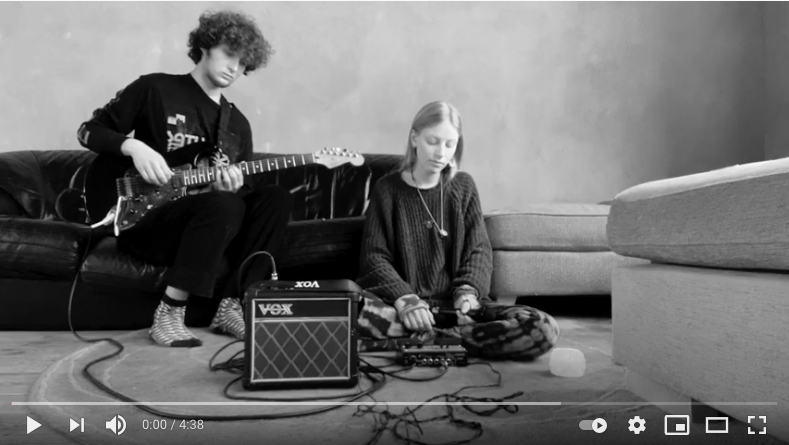
Song Writing & Music Making – Järna & Göteborg
The twists and turns of fate found myself (Ultra) & Morgan here in Sweden during our learning placement month. While bearing witness to the changing of the seasons from winter to long-awaited spring, we used our time to focus on what we both love to do most: make music! We were able to spend our days busking, learning new repertoire, writing new songs (individually and for our band Circle’s Edge https://linktr.ee/circlesedge), and recording videos for our youtube channel. While Morgan dived headfirst into a personal study of jazz guitar theory, I recorded and produced a single ‘when my wings dry’ which is now out on all streaming platforms! I was also able to use this time to assemble a portfolio and apply to a music program in my hometown, Chicago <3
This was a time of personal healing and growth, of challenge and excitement, of creativity and contemplation. It was such a gift to be able to focus our energy on our creative callings, and on envisioning a future after YIP where they can be nourished.
Now enough talking, here’s some sounds from our month!
Circle’s Edge in action:
Original song featuring the Tallevanna common room 🙂
Ultra & her looper pedal in action:
A meditation on spring (as told by the birds of Ytterjärna)
Listen to ‘when my wings dry’ on bandcamp
Wishing you all a music-filled day & a happy spring!
By Ultra
Learning Placement Podcast: Part 1
Here is the 1st podcast of a 3 part series we, YIP13, have created to give you a small taste of our learning placement experiences. Over the 3 episodes Mimi and Lilith (the hosts of Live from the Beehive podcast that debuted at our Initiative Forum) will discuss some of the different experiences had by YIP13 during this time. We hope you enjoy hearing about our adventures!
.
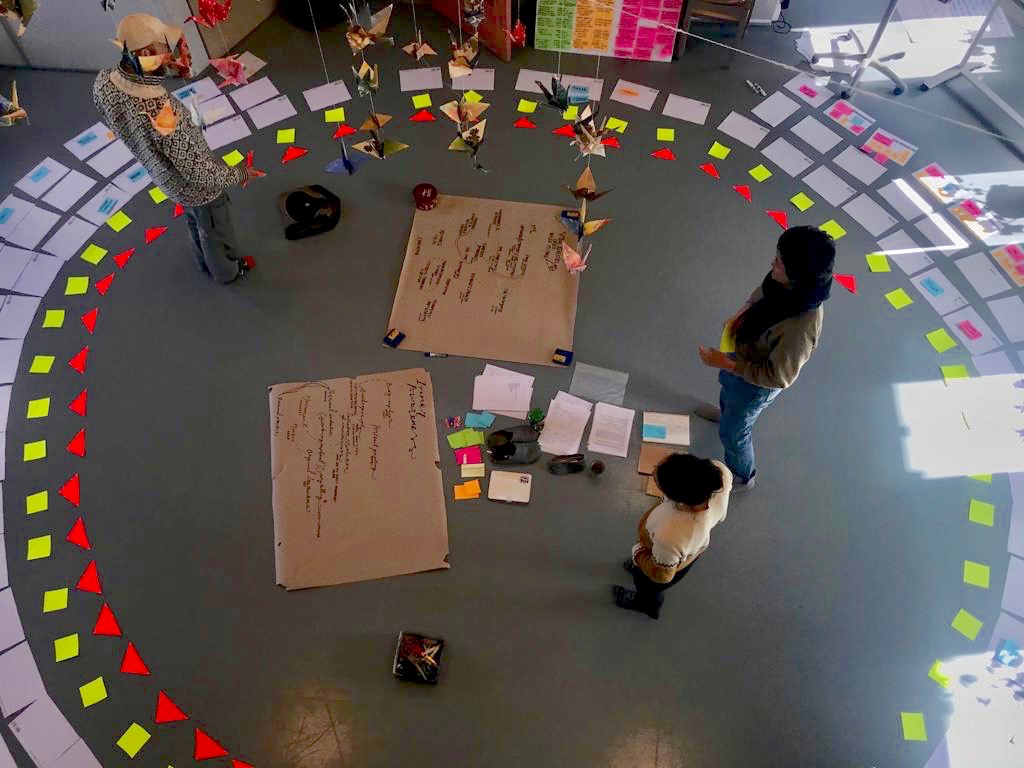
Meanwhile in Ytterjärna
Whilst YIP13 have been encountering the world in different ways, in different places and constellations, we on the organising team have been inviting the world here; to Ytterjärna, creating and visioning for the future of YIP. Each year, when designing the curriculum for the coming year, we truly take YIP back to the drawing board. We ask what the world is needing right now and what needs in the world call us to do this work.
We began reflecting on this year, the joys and challenges we have worked with and through as well as taking a broader view to YIP, drawing on the wisdom and experience of our alumni network to orient ourselves in the context of what we aspire to create for YIP 14. We stretched our minds across many different timescales and played with the curriculum, moving circles and pieces and asked ‘what if, what if?!’. We took our minds as far out as possible, exploring calendars, ways of knowing and learning, different seasons and integrative practises to connect theory with daily life and rhythms.
Having taken the time to really dream and question the form of YIP outside of any box, we feel excited by the design for YIP 14 which contains the breadth of this exploration within it. Now we are ready to move forward with solidifying and bringing some of the pieces down to earth. We await the participants of YIP 14, and hope that those who need to find us will.
If you know someone who you think should find YIP, please share. YIP finds its participants most often through word of mouth, and you, our network are our best advocates and ambassadors.
Warmest wishes from the organising team!
By Naomi
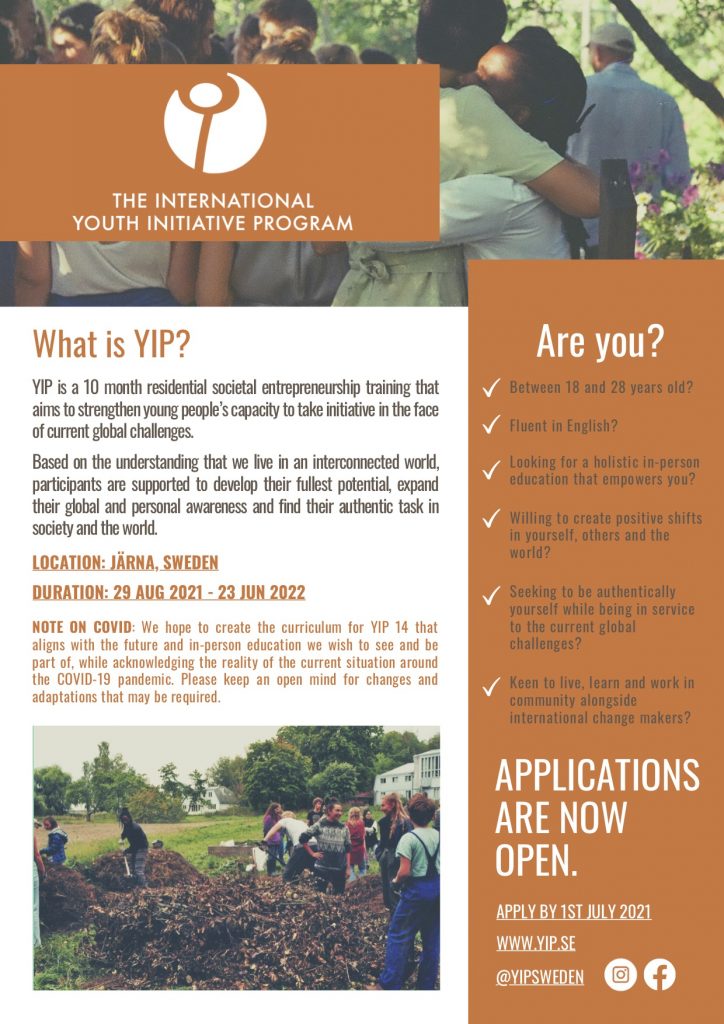
We have created a media kit with posters, social media posts and publication text. Please help us help people find YIP. Thank you for your support!
In the next Newsletter you can expect:
• Self-Designed Curriculum Highlights
• Personal Initiative Inquiries • YIP14 Update
